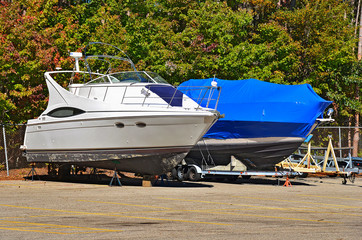It’s been a long, difficult year for restaurant owners. The pandemic and the post-pandemic environment have created unexpected challenges, and many proprietors have had to permanently close their businesses. Lengthy forced lockdowns, followed by the inability to attract employees, have added to their problems. The good news is that they were able to solve some of their issues by leasing safe, affordable self storage.
Restarauanteurs were able to protect their valuables by storing items that were particularly vulnerable to break-ins and deterioration. Secure, climate-controlled units are up to the task of protecting everything from wine and liquor to kitchen and office equipment.
Fortunately, restaurants are reopening and business is brisk. People are happy to return to the normality of spending time in their favorite bars and eateries. No one, of course, is happier than the restaurant owners themselves. They can return to the business of providing for themselves and their families and serving happy customers. Self storage, nevertheless, is still a much-needed solution for owners who have little on-site storage space.
Self Storage: A Restaurant Owner’s Solution
If you own a restaurant and haven’t yet considered the benefits of self-storage, you should consider leasing a unit. There are so many great facilities available that you may want to read How to Choose the Right Self Storage Facility for Your Needs. This article provides some tips and tricks on finding the right self storage facility for your restaurant business.
In the meantime, here are a few suggestions as to how your business can benefit from self storage.
Seasonal Furniture
If your restaurant features an outside space, you probably use it only for certain months. Being located in an area with severe winters, or uncomfortably hot, humid summers, you may benefit from storing that outdoor furniture for part of the year. You’ll get more years and more use out of furniture that’s protected from temperature extremes.
Holiday Decorations
Restaurants celebrate the holidays the same way that homeowners do – with lots of decorations. Lights, garlands, Christmas trees, and other items seem to accumulate over the years. If you cater to weddings or other large events, you’re faced with an even larger volume of decorations. When these items are not being used, it’s convenient to be able to store them away from spaces already overcrowded with restaurant supplies.
Supplies and Equipment
Speaking of restaurant supplies, most restaurants have an overflow of dishes, flatware, linens, and serving pieces that they don’t use every day. Breakable items are damaged and lost every day, so you need a sizable backup of these items. Being able to purchase in bulk when prices are low is an advantage to any restaurant owner. Self storage gives you a place to stash these things until they’re needed.

Wine and Liquor
For most alcoholic beverages, including beer and various liquors, it’s crucial that the storage area be kept at an ideal temperature. When searching for a place to store your wine, look for a reputable, secure, climate-controlled facility with an appropriately sized space for the number of bottles you’re storing. If the unit is suitable for wine, your other alcoholic beverages should be safe. Spend some time discussing options with your self storage professional.
Spices, Canned Goods
Typically, self-storage facilities prohibit food storage. If you do make an arrangement to store certain items used in food prep, the best way to protect all of these items is with climate-controlled storage. You can save money by purchasing these products in bulk. When you’re packing these items for storage, be sure to use plastic crates and bins and keep them on restaurant-quality shelving above the floor.
Catering Services
If your business provides outside catering, you’ll probably want to store those supplies separately. Leasing a separate self storage unit for chafing dishes, steam table pans, crocks, and transport supplies is your best option. These items require considerable space, and you don’t want the confusion of storing them with your restaurant supplies and equipment.
Vehicle Storage
A catering service requires trucks or vans for transport. If you don’t have parking space at your restaurant or elsewhere, most self storage facilities offer either outdoor or enclosed parking. You can get details from your self storage facility manager.
Conclusion
Evaluate your business to determine whether or not self storage is a good solution for you. Most facilities offer month-to-month leasing, so you won’t have to worry about a long-term commitment. Another advantage is that self storage is scalable. If your business grows you can lease a larger unit. If you have to downsize, no problem. It’s that simple. If it looks like your restaurant can benefit from self storage, find a facility that is a good fit for your needs and discuss your options with the manager. Having secure, affordable self storage will solve your space problem and make your life a little bit less complicated.

